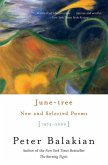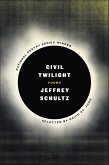In "Why Marry?", Jesse Lynch Williams presents a groundbreaking exploration of societal norms surrounding marriage in the early 20th century. This play, written in 1910, effectively employs incisive wit and poignant dialogue to challenge prevailing conventions, examining the motivations behind the institution of marriage through the lens of contemporary American life. Williams' work is noted for its pioneering satirical style, blending comedy with serious social critique, and it reflects the burgeoning discussions of gender roles and personal autonomy that characterized the Progressive Era. Jesse Lynch Williams was a prolific writer and a key figure in the early American theatre scene, often celebrated for his ability to intertwine humor with critical social themes. His own experiences as a member of a changing society undoubtedly informed his perspective; a keen observer of the dynamics of relationships and the conflicts between tradition and modernity, he sought to provoke thought about the consequences of conformity. Williams'Äô own educational background in literature and drama positioned him uniquely to navigate the complexities of his subject matter with both empathy and insight. "Why Marry?" is a compelling read for those intrigued by the intricate interplay of love, duty, and societal expectations. It provides valuable commentary not only on its historical context but also on contemporary discussions surrounding marriage and relationships. Readers will find in this thought-provoking work a balance of humor and gravitas, shedding light on the perennial dilemmas of intimacy and choice.
Dieser Download kann aus rechtlichen Gründen nur mit Rechnungsadresse in A, B, BG, CY, CZ, D, DK, EW, E, FIN, F, GR, H, IRL, I, LT, L, LR, M, NL, PL, P, R, S, SLO, SK ausgeliefert werden.









